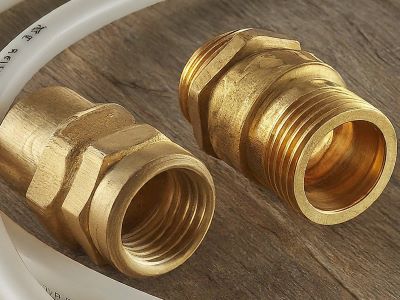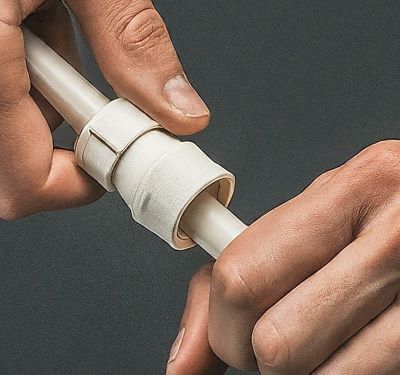The rise of PEX piping systems has revolutionized plumbing. But with this revolution comes a new decision: which type of PEX fitting should you use? There are two main contenders: brass and plastic. Each has advantages and disadvantages, so the ideal option will rely on your own requirements.
Let’s delve into the world of PEX fittings and help you pick the champion for your next project.
PEX Brass Fittings
Brass fittings are the seasoned veterans of the PEX world. They offer several advantages:
➡️ Strength and Durability: Like a well-built suit of armor, brass fittings can handle high-pressure applications with ease. This makes them ideal for critical areas like main water lines.
➡️ Heat Warriors: Hot water is no problem for brass. Its superior heat resistance makes it a reliable choice for hot water lines.
➡️ Classic Look: For exposed pipes, brass fittings offer a more traditional aesthetic that some homeowners prefer.
However, brass fittings do come with some drawbacks:
➡️ Pricey Punch: Compared to plastic, brass fittings can put a bigger dent in your wallet.
➡️ Corrosion Concerns: Brass can be susceptible to corrosion, especially in areas with hard water.
➡️ Weighty Matters: Their sturdiness comes at a cost – brass fittings are heavier than plastic, making them slightly trickier to handle during installation.
PEX Plastic Fittings
Plastic fittings are the new guard, offering a modern approach to PEX connections. Here’s what makes them stand out:
➡️ Budget-Friendly: Plastic is the clear winner in terms of cost. They’re significantly cheaper than brass fittings, making them an attractive option for budget-conscious DIYers.
➡️ Lightweight Champions: Installation is a breeze with these lightweight fittings. They are simple to manage and move about, even in confined areas.
➡️ Corrosion Resistant: Unlike brass, plastic fittings generally hold up well against corrosion, making them a good choice for various plumbing applications.
But plastic fittings also have limitations:
➡️ Strength Limitations: They may not be as strong as brass, so high-pressure applications might be a concern.
➡️ Hot Water Hiccups: While some plastic fittings are rated for hot water, their heat tolerance might be lower than brass.
➡️ Looks Matter: The plastic aesthetic might not be ideal for exposed pipes in design-conscious areas.
Choosing Between Brass and Plastic
So, which fitting reigns supreme? The answer depends on your specific needs. Here are some factors to consider:
➡️ Application: Hot water lines? Brass might be a safer bet. Cold water lines or low-pressure areas? Plastic can shine.
➡️ Pressure Requirements: High-pressure applications demand the strength of brass.
➡️ Budget: Plastic is the champion for cost-effectiveness.
➡️ Desired Aesthetics: For exposed pipes, consider the visual appeal you prefer.
➡️ Local Building Codes: Always check local regulations, as some areas might have restrictions on fitting types.
Expert Insights
“For critical areas like washing machine hookups or main water lines, I always recommend brass for its superior strength and durability,” says Sarah Jones, a licensed plumber with over 15 years of experience. ” However, for non-critical cold water lines or areas with soft water, plastic fittings can be a great cost-effective option.”
When it comes to hot water lines, expert opinions vary. “While some high-quality plastic fittings are rated for hot water, I generally prefer the higher heat resistance of brass for peace of mind,” says John Lee, a master plumber.
Cost Comparison
Here’s a rough estimate of the relative cost difference:
|
Fitting Type |
Cost |
|
Brass |
Higher |
|
Plastic |
Lower |
The Final Verdict
The battle between brass and plastic PEX fittings is a close call. Brass offers strength, heat resistance, and a classic look, while plastic is lightweight, budget-friendly, and corrosion-resistant. Consider your specific project requirements and preferences to choose the champion for your plumbing needs.
Remember, when in doubt, consulting with a qualified plumber can ensure you make the best decision for a secure and long-lasting PEX system.
Post time: Jun-07-2024



